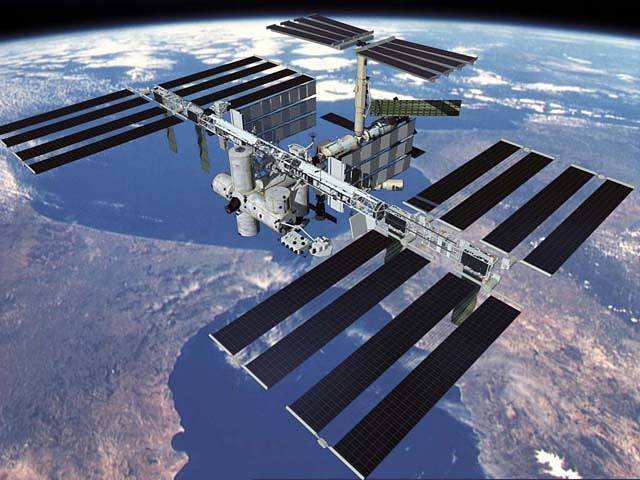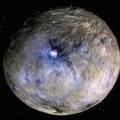A new joint study between researchers in the United States and India involving bacteria recovered from within the International Space Station (ISS) has identified three strains previously unrecognized by science.
The bacteria strains were isolated from samples retrieved from various areas of the ISS that included an overhead panel from within a research station on board the craft, as well as from a dining table, the craft’s Cupola, and an HEPA filter that was returned to Earth in 2011.
The strains, isolated from samples in 2015 and 2016, belong to bacteria commonly found in freshwater and soil on Earth.
“The genus Methylobacterium consists of 45 recognized species, which are ubiquitously present in a wide variety of habitats including air, soil, freshwater, and sediments, and can exist either in free-form or associated with plant tissues,” the study’s authors say.


These bacteria, which play a significant role in plant growth on Earth, likely made their way to the ISS as a result of vegetables being grown on the ISS by astronauts throughout the years.
Not all of the bacteria recovered from the ISS since 2015 has been unrecognized. The strain recovered from the space station’s HEPA-filter belongs to the known species Methylorubrum rhodesianum.
In addition to the new strains discovered on the space station, the scientists involved with the research say there are likely to be more discoveries of new bacteria strains forthcoming. Presently, around 1000 samples have been collected on board the space station, which have yet to be returned to Earth for further analysis as they await future retrieval.
It is possible that microbes like those discovered on the ISS may be beneficial to future space missions, not only on account of the role they play in plant growth promotion, but also their apparent ability to thrive in an environment like the space station that is harsh for microbes to live in.
“To grow plants in extreme places where resources are minimal, isolation of novel microbes that help to promote plant growth under stressful conditions is essential,” said Jet Propulsion Laboratory’s Kasthuri Venkateswaran and Nitin Kumar in a statement.
One of the newly discovered strains in particular, identified as IF7SW-B2T, appears to possess a genetic propensity for the production of cytokinin, which aids in various aspects of plant cellular division.
“The isopentenyl tRNA transferase (miaA) essential for cytokinin production reported in M. aquaticum strain 22A was also found in genome of the ISS strain IF7SW-B2T with high similarity,” the study’s authors say.
Part of ensuring future longer-term space missions requires not only the ability to carry food and other resources, but the ability to replenish them. Plant-based sources of food and other materials will play a significant role in the future success of missions to planets like Mars, where the first human arrivals may be required to remain indefinitely.
The team believes that their research involving these new bacteria strains may help with the further identification of genetic factors that aid plant growth in unique environments—namely the microgravity conditions of orbit—and may help ensure the sustainability of crops for future long-term space missions.
The research, part of a series of articles dealing with Microbial Genomics and Taxogenomics of Extremophiles, was published in the Frontiers in Microbiology, and can be read online.
Follow us on Twitter, Facebook, and Instagram, to weigh in and share your thoughts. You can also get all the latest news and exciting feature content from The Debrief on Flipboard, and Pinterest. And don’t forget to subscribe to The Debrief YouTube Channel to check out The Official Debrief Podcast.

